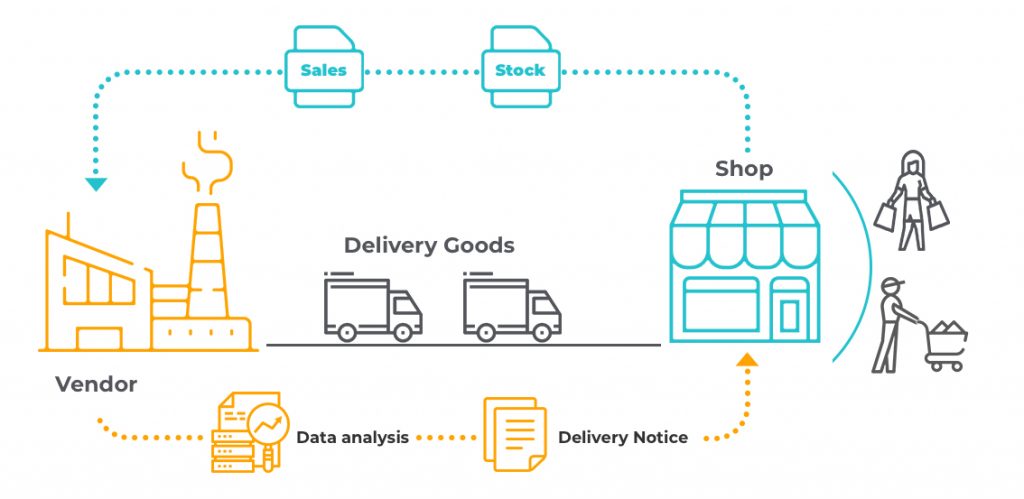Table of Contents
Data analytics is transforming every aspect of business across different industries, and a delivery management business is no exception. The dynamic nature of the supply chain business makes logistics the perfect use case for data.
A delivery management business consists of an intricate structure, and you can obtain valuable insights by leveraging data scattered across the business. This data helps solve a variety of business issues like streamlining operations, optimizing routes, and establishing more transparency throughout the supply chain.
Historically, the logistics industry has remained largely fragmented when it comes to processing complex data. But adopting data culture and putting effort into understanding advanced data analytics can be a boon for the logistics industry as a whole.
So, how does data analytics help? With the arrival of big data usage, businesses have transformed how they used to deal with analytics. Today, many logistics companies are using Shipping data analytics to anticipate peak functioning periods of their business, assess future risks, identify opportunities and manage potential supply disruptions proactively.
According to research by Global Trade, around 93% of shippers and 98% of third-party logistics companies believe that data analytics is crucial when making intelligent business decisions. In fact, 71% of them believe that data analytics adds greatly to the quality and performance of their business.
Logistics companies have been under immense pressure ever since the COVID-19 pandemic hit our lives. It has encouraged many companies to pair up their business operations with powerful delivery data analytics.
As life goes back to normal in the coming months, we can expect to see smarter and faster logistics networks, handling a multitude of challenges thrown at them with ease. However, they will continue to receive millions of daily orders globally and will only be able to sustain their business if they work with data.
How Data Analytics is Transforming Delivery Management Businesses
But all of the said changes cannot happen overnight. Logistics companies have spent a lot of time and money to optimize their network efficiencies. Setting up new infrastructure, upgrading their technology stack, and most importantly, implementing shipping analytics software to the logistics side of things.
Let’s find out how delivery analytics is helping logistics companies across the globe as they modernize their technology stack for present-day operations. Here are a few prominent areas that are being optimized with advanced data analytics:
- Managing Performance
It is crucial to understand and resolve inefficiencies across different metrics across the entire supply chain. Performance management teams can achieve actionable results using data insights at their disposal.
Data can help managers in monitoring the performance of their entire workforce in concrete numbers. It can also shed light on the reasons behind poor performance; these reasons often include poor routes, excessive resource utilization, improper docking schedules, and breakdowns in machinery, to name a few.
Once they know the reasons, managers can intervene quickly and improve the efficiency of in-house teams and other network partners.
- Improving Order Processing Capabilities
With efficient data integration into the operational processes, you can make space for additional orders in the system. As a result, you can cater to more orders and drive the demand for your services across the supply chain.
In a nutshell, delivery analytics improves the order processing capabilities of your organization, exposes any ongoing problems in the supply chain, and allows the concerned teams to fix the issues faster.
- Increasing Productivity
Data analytics can be beneficial for the company and its supply chain partners. Real-time data sharing with everyone is of prime importance and by enabling the same, you can increase the operational efficiency of your logistics business.
You can capture data from different sources like fluctuating customer demand, performance data of delivery partners, data on operational efficiency, and other external factors to improve transparency to all stakeholders.
It will also help you improve the overall performance of the operations teams and enable them to work towards increasing the efficiency of different processes.

- Improving Forecasting
Monitoring the teams’ performance on an ongoing basis helps you identify inefficiencies in real-time. As soon as their performance data display any red flags or errors, you can jump into action and take the necessary measures to mitigate or eliminate them.
Some prominent errors include delays in picking procedures, lack of items in shipping, and errors in picking rates. Managers can utilize the information and intervene accordingly. They can also use predictive analytics to anticipate the demand for a product at a specific time based on historical data. They can also check different metrics and KPIs to determine any upcoming inventory shortages and reduce operational costs.
- Route Optimization
Implementing robust route optimization features like real-time GPS data, delivery partner schedules, road maintenance information, fleet location, and access to historical data, your delivery partners can access optimized routes at a specific time of delivery.
Logistics companies want to use data to improve their delivery speed and offer real-time visibility of orders to customers. On the other hand, customers expect that their orders will be delivered in time.
Hence, you need to analyze data to improve each aspect of your logistics operations to create lasting customer relationships.
- Digitization of Crucial Processes
Whether it is routing, pricing, or load shipment consolidation, advanced delivery analytics can help you optimize all these operations and more. Digitization also provides customers with a hassle-free experience and improves the visibility of your internal operations.
When automation is applied to the core of a business, it simplifies labor-intensive operations and makes the process more efficient.
Wrapping Up
The logistics industry is constantly evolving and is adapting to a new digital environment. The only way to use new technology properly is to have every form of data at your fingertips and use it to optimize different technologies in your stack.
Not sure how you can implement the aforementioned points into your logistics business? Why not invest in an AI-powered delivery management software that automates your business’ logistics side of things.
NetworkON offers outstanding features like AI-powered route optimization, digital proof of delivery, fleet visibility and management, geofencing, automatic order assignment, performance analytics, and access to various third-party integrations.
To know more about NetworkON and how it can create a significant impact on your business, write to us at info@networkon.io or visit our website.
Read our blogs and learn more about the importance of delivery management for your business.
How Route Optimization Reduces Cost, Increases ROI, and Builds Brand Loyalty
Frequently Asked Questions
What is delivery management?
Delivery management involves coordinating and overseeing the delivery process from start to finish, ensuring goods are delivered to customers efficiently and on time.
How does data analytics help delivery management?
Data analytics helps by providing insights that improve various aspects of delivery, such as route optimization, order processing, and performance management, making the process faster and more efficient.
What are some benefits of using data in logistics?
Using data in logistics can help companies predict demand, optimize routes, improve order processing, manage performance better, and increase overall productivity.
What is route optimization?
Route optimization involves finding the most efficient delivery routes, saving time and fuel, and ensuring timely deliveries.
Why is digitization important for logistics?
Digitization streamlines operations by automating processes, reducing errors, and improving visibility for the company and customers, leading to a smoother delivery experience.
How can NetworkON help my logistics business?
NetworkON offers AI-powered tools, such as route optimization, digital proof of delivery, fleet management, and performance analytics, to help improve efficiency and customer satisfaction in logistics operations.





0 Conversations